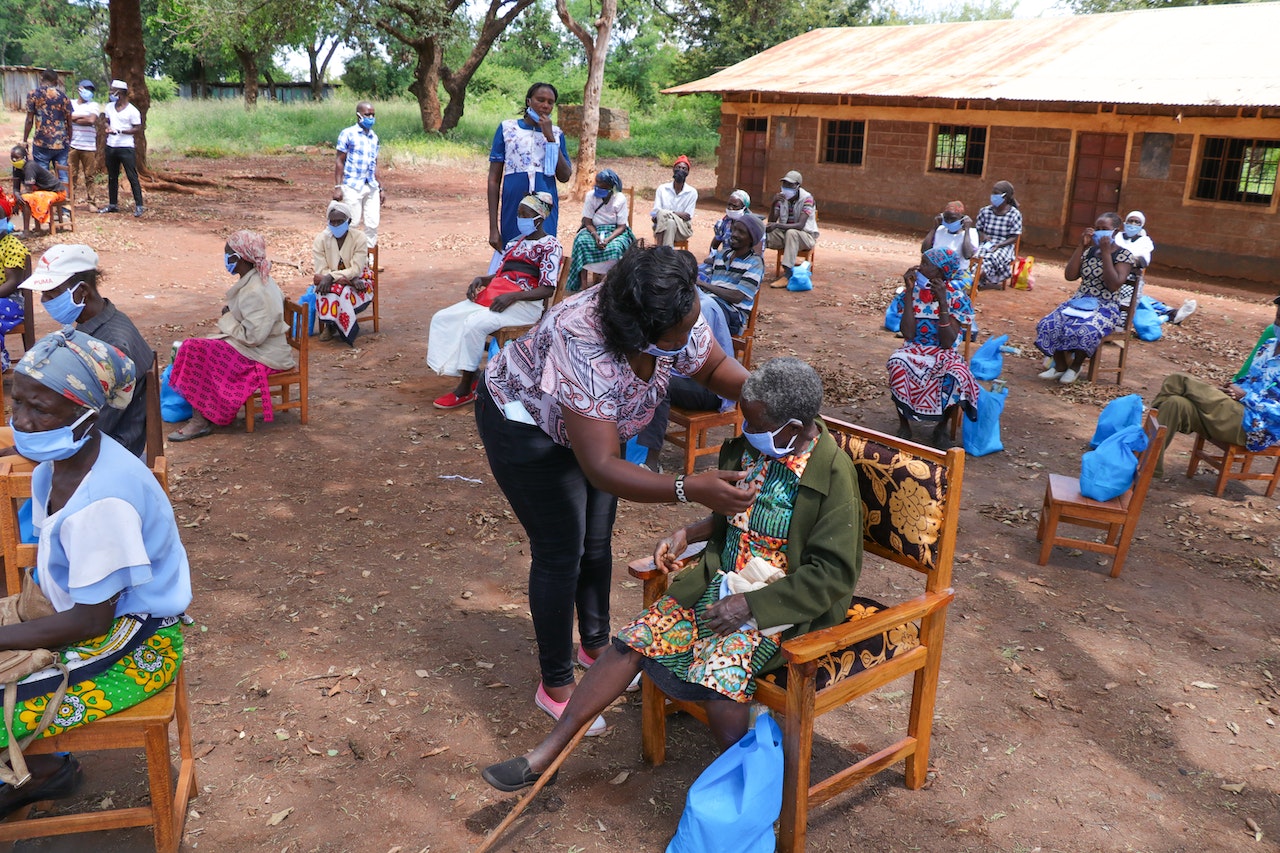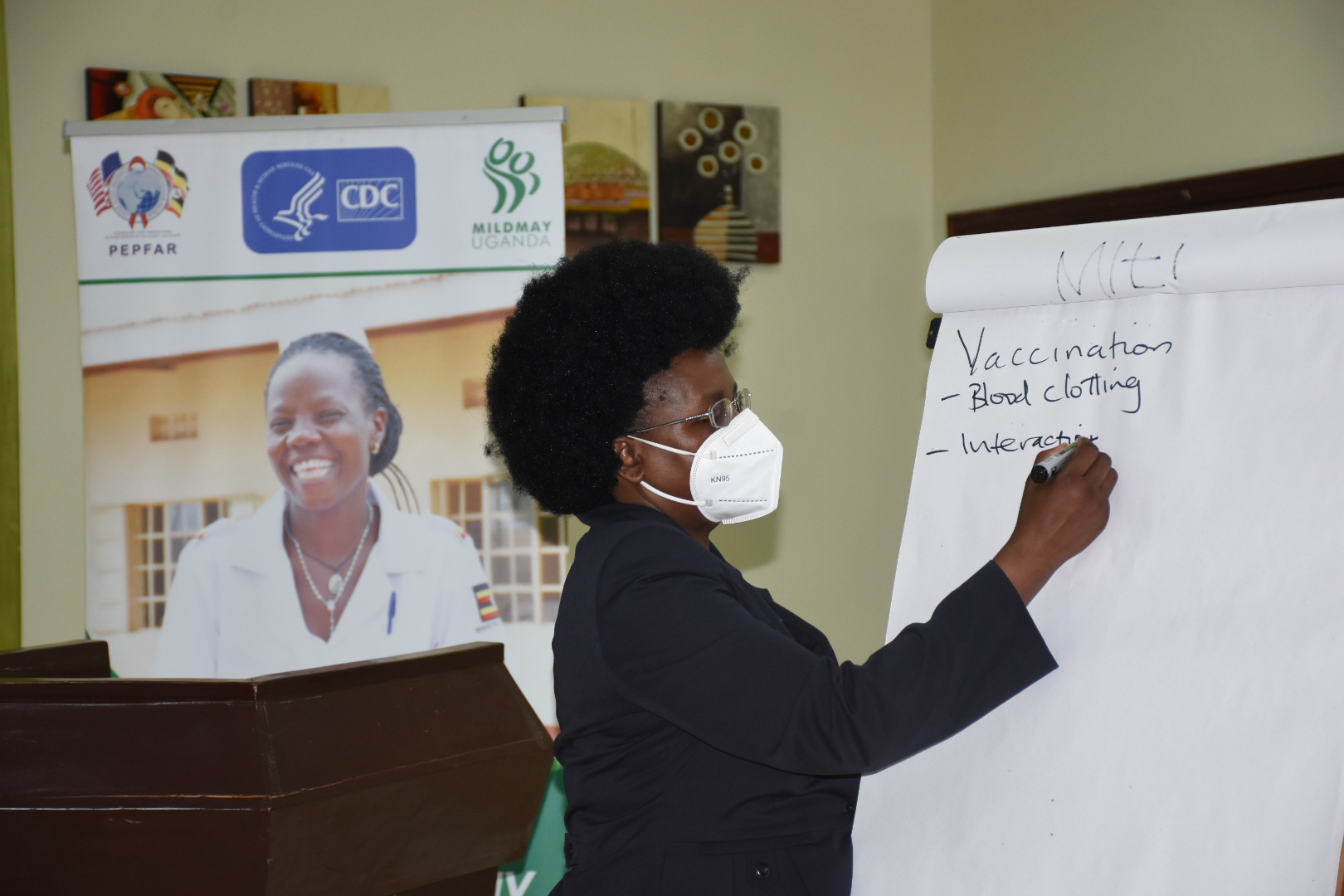- Give & Donate
- Reports
- Mildmay Hospital
- Mildmay Institute
- Mildmay Research

Global Health Security
Strengthening Global Health Security through IPC, Surveillance, Risk Communication, and Coordination
The Global Health Security (GHS) Objective is to build strong and resilient public health systems for surveillance and response to infectious diseases. Uganda is considered a ‘hotspot’ for emerging and re-emerging infectious disease outbreaks. It has experienced several epidemics including Ebola, Marburg, Plague, Rift Valley Fever, Yellow Fever, and Crimean Congo Hemorrhagic Fever.

Epidemics overwhelm health systems, devastate economies, erode household incomes, and cause global health insecurity. As per the World Health Organization, one or more new infectious diseases have emerged each year since the 1970s.
Our practical experience at the frontline of responding to the global COVID-19 pandemic, Ebola Virus Disease, and other outbreaks in central Uganda guided the development of our new global health security strategy.
We are addressing crucial components including, infection prevention and control (IPC), surveillance, risk communication, and coordination. Over the years, we have built the capacity for fostering a resilient and coordinated response to health threats, ensuring the safety and well-being of communities.
How we are making an Impact.
-
1. Infection Prevention and Control (IPC):
-
2. Surveillance
-
3. Risk Communication
-
4. Coordination:
Health facilities supported with infection prevention and control equipment and supplies (in the past year)
Health workers given infection prevention and control skills (in the past year).
Community health workers supported to conduct disease surveillance (in the past year)
Received COVID-19 testing at Mildmay (in the past year)
Received COVID-19 Vaccine (in the past year)
Related stories
Take a look at the stories from our partners, our field professionals, as well as the people and communities we serve under this programme : Global Health Security
Our COVID-19 Vaccination uptake at Mildmay Uganda Hospital
64-year-old Bruhan Kiweewa, a driver at Uganda Clays, (manufacturers of baked clay building…
Spread COVID-19 Messages of Hope To Ugandans - Dr. Musenero Urges Pentecostal Leaders
Dr. Monica Musenero (Photo above), the Presidential Advisor on Epidemics, has urged leaders of…

